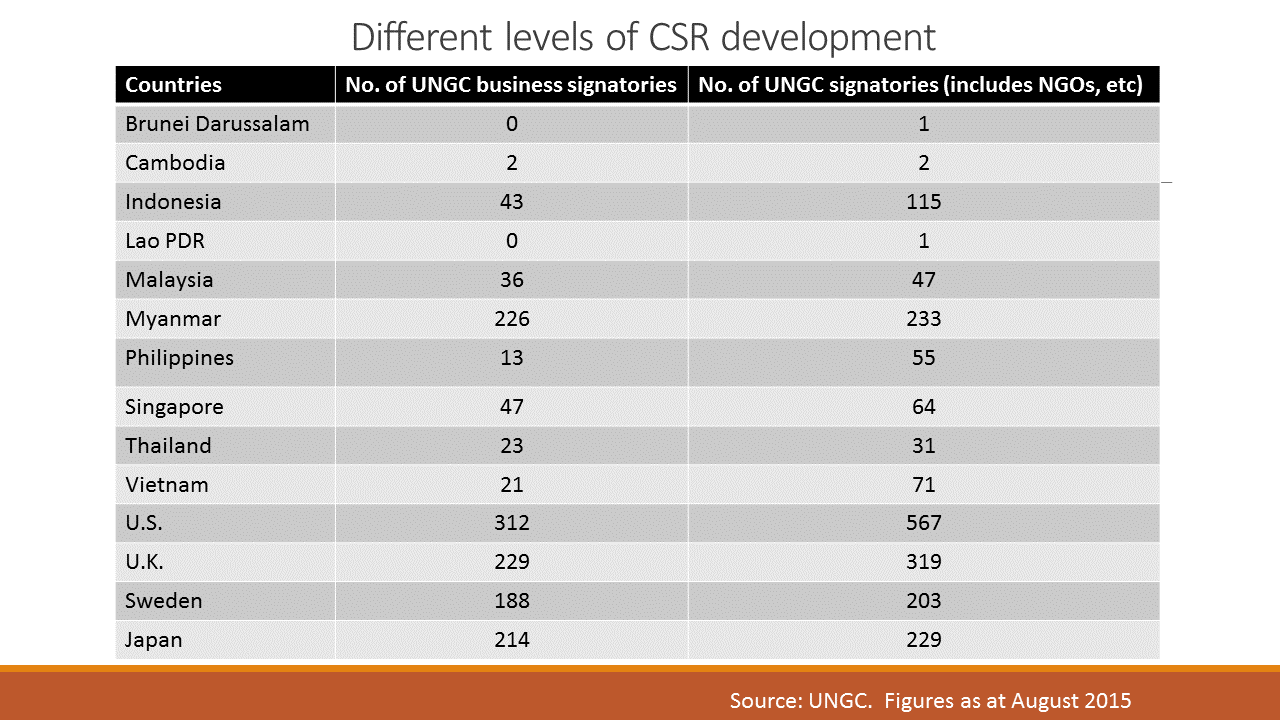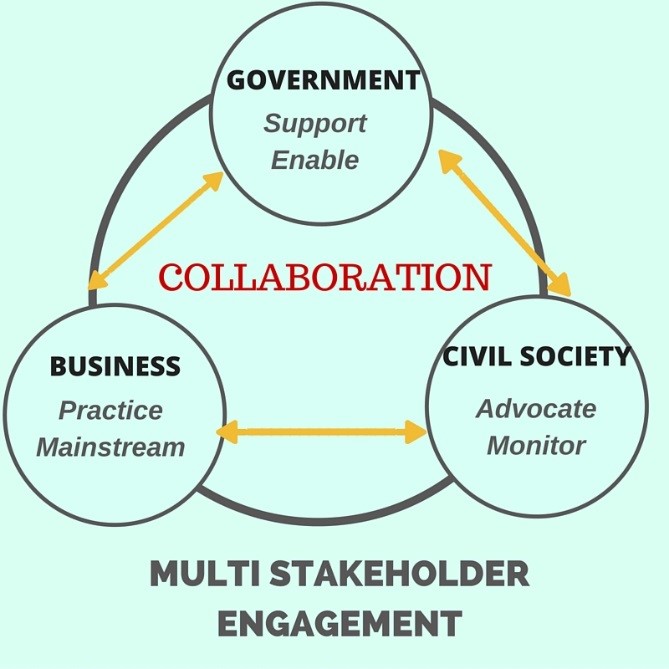CSR Adoption: The ASEAN Perspective
Explore the meaning of CSR, it’s context in the ASEAN region and why multi-stakeholder engagement is key.
Turning point for ASEAN in 2015
This year marks a turning point for ASEAN as the deadline for an integrated ASEAN Economic Community approaches and a new strategy and agenda is formulated. An integrated region brings numerous benefits such as a single market and production base, free movement of goods and labour, greater intra-ASEAN investment and trade.
However, an integrated ASEAN also brings numerous challenges such as widening income gaps, worsening corruption, human rights abuses and further environmental degradation, putting vulnerable groups at risk.
What can businesses do to tackle and resolve these issues? Should they just give money to charities and do philanthropic work? Is that effective and will it create real impact to vulnerable groups? What kind of stakeholder engagement is recommended for the effective implementation of CSR? Should the adoption of responsible business practices or Corporate Social Responsibility (CSR) be limited only to bigger multinationals?
Definition of CSR
Before we delve into these questions, let us define what CSR means as different people have a different understanding of what CSR entails. CSR is not about how money is spent but more about how money is made. It is beyond charity and philanthropy. Below are two definitions of CSR from Global Compact and the ISO 26000 Standard on Social Responsibility. 
CSR in the ASEAN context
Now that we have a common understanding of CSR, let’s look at how widely CEOs believe in the adoption of responsible business practices in companies. According to a UN Global Compact (UNGC) – Accenture CEO Study on Sustainability in 2013, 84% cent of CEOs believe that businesses should lead efforts to define and deliver sustainable development goals but more than two-thirds of them believe that businesses are not doing enough to address global sustainable challenges.
However, adopting CSR should not be limited to big MNCs. In the ASEAN context, Small and Medium Enterprises (SMEs) play a crucial role as they account for more than 96% of all enterprises and 50% to 85% of domestic employment. But how many of them are already adopting UNGC principles? From the table below, more needs to be done to encourage the adoption of responsible business practices among ASEAN businesses.
Why multi-stakeholder engagement is key
While businesses must do its part, they do not work in a vacuum. Governments and civil society also have a role to play and all parties must be partners in the journey towards a more responsible environment for the community.

In the second part of the article, we will interview some of the organisers who express what they hope to achieve at the upcoming ASEAN Responsible Business Forum.
Click here for the second part.
